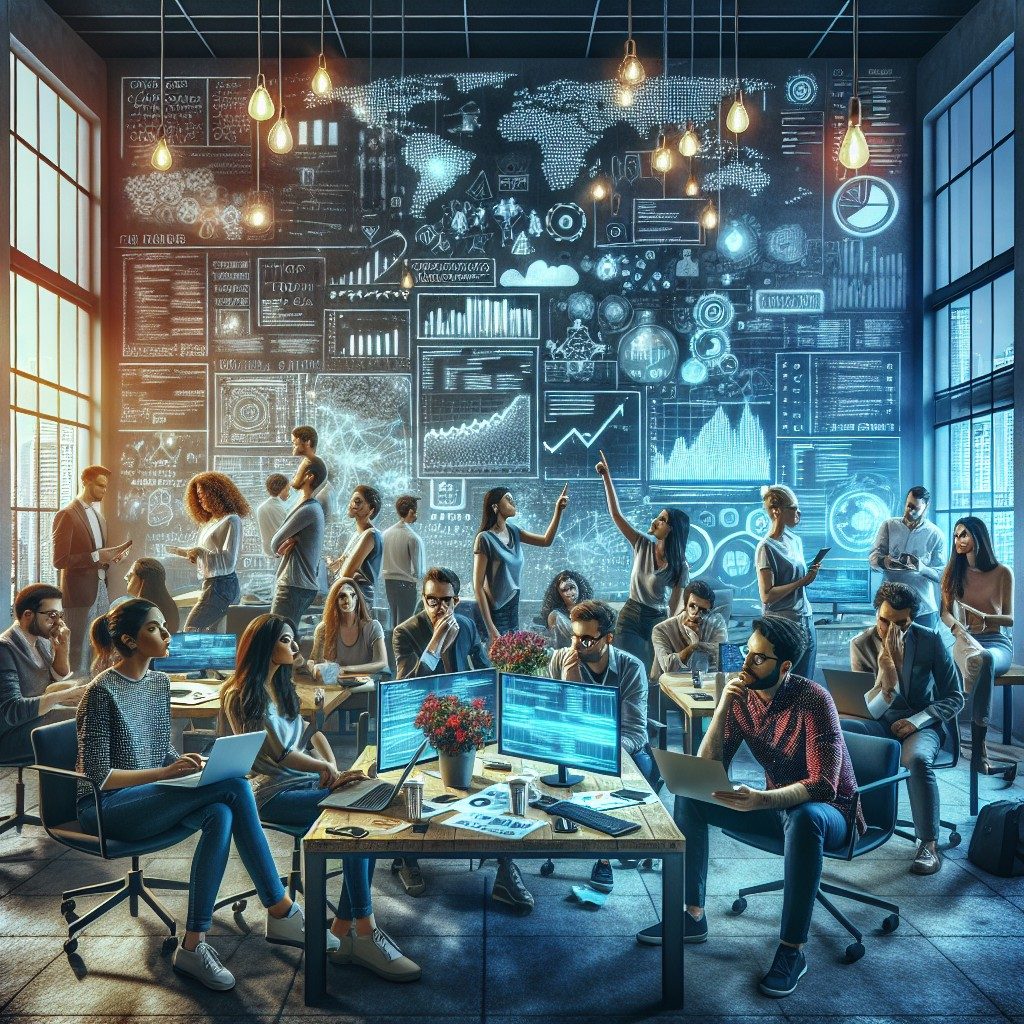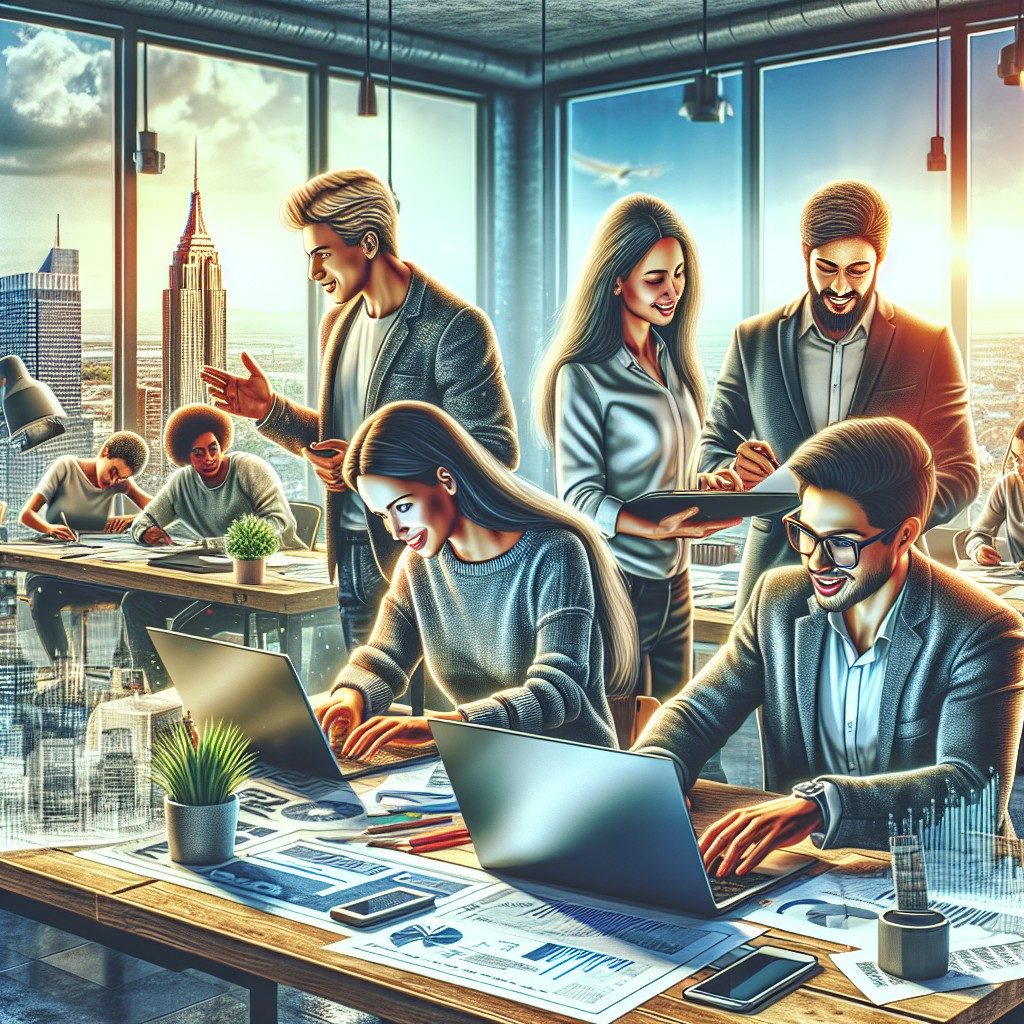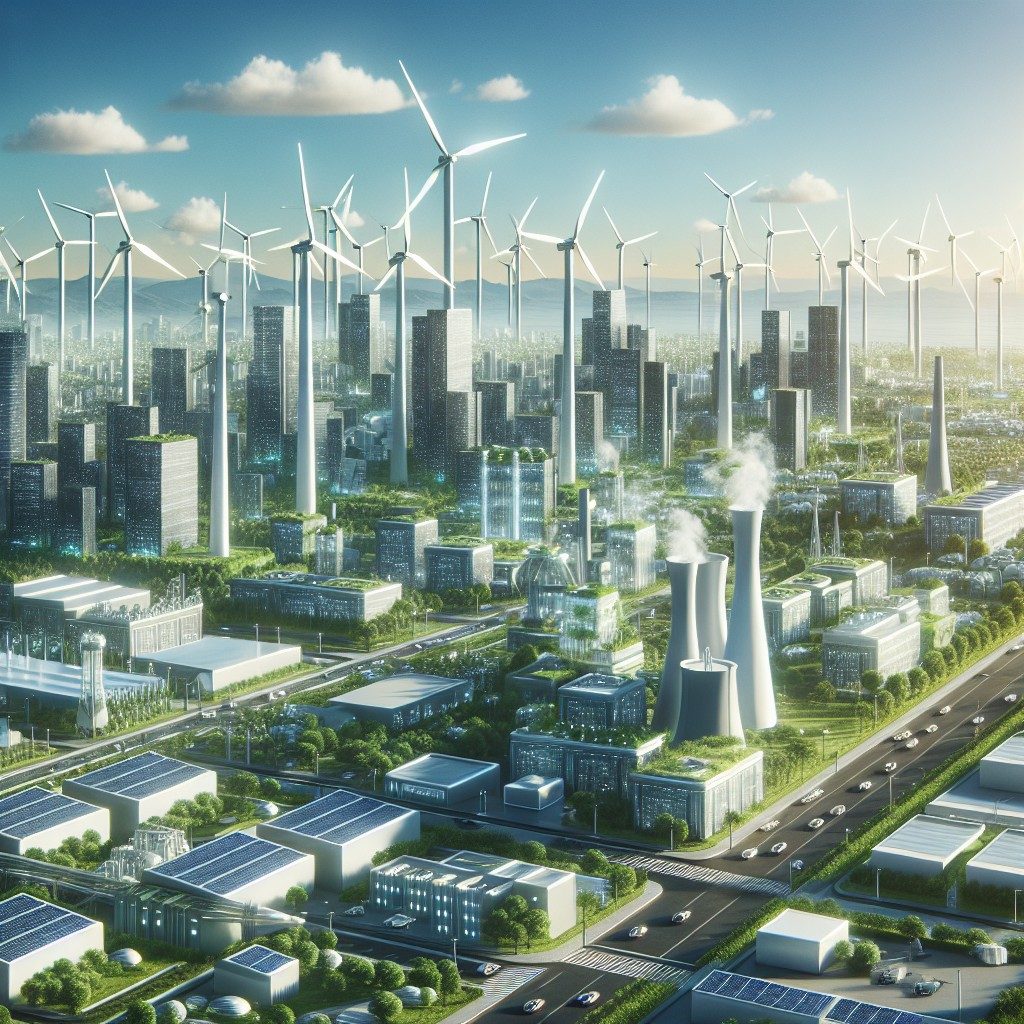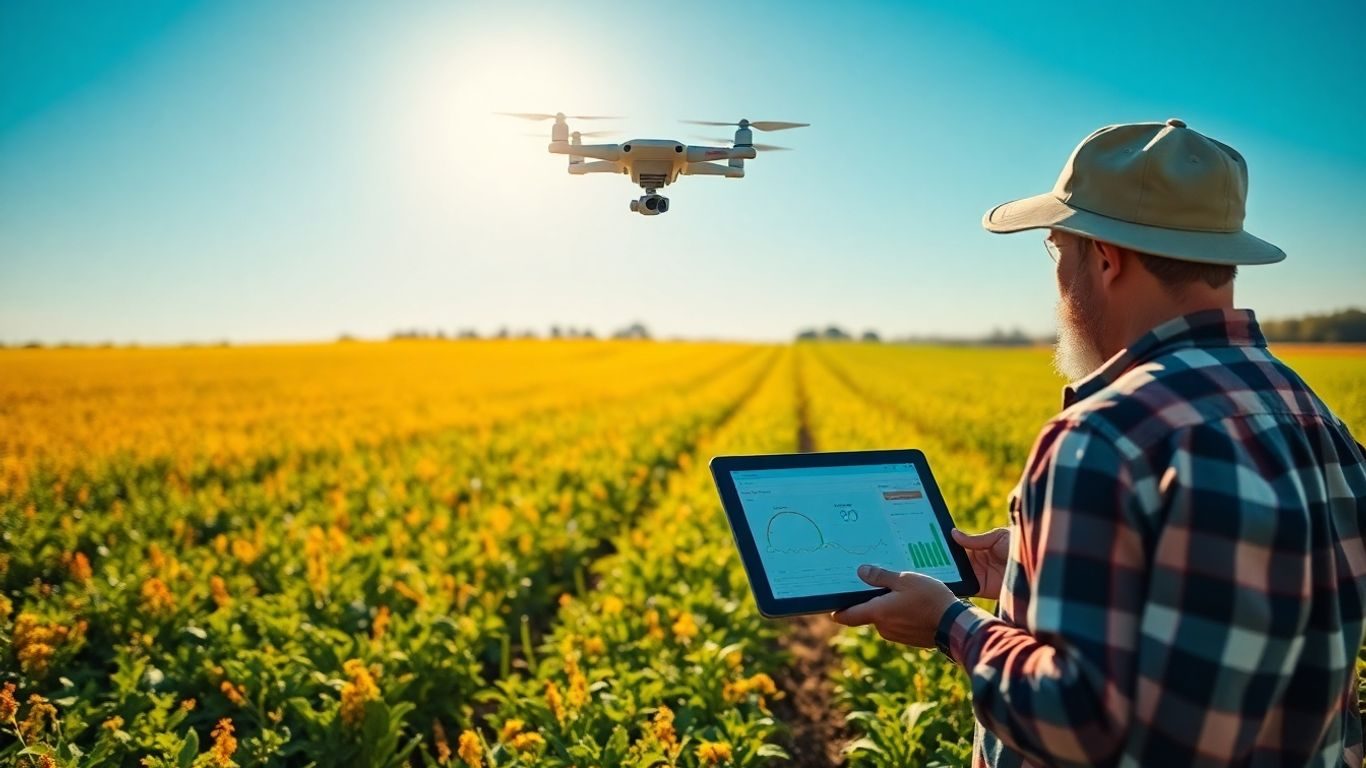Idei de startup-uri care pot transforma viitorul afacerilor

Diving into the world of startups can be both exciting and overwhelming. With the rapid pace of technological advancement and a growing emphasis on sustainability, the landscape of business is shifting. Entrepreneurs are now seeking innovative startup ideas that not only promise financial success but also contribute positively to society and the environment. This article explores various startup ideas that are poised to transform the future of business, offering fresh perspectives and opportunities for aspiring entrepreneurs.
Key Takeaways
- Startups are driving innovation in technology and sustainability.
- Entrepreneurial success often requires adapting to changing market needs.
- Sustainable business models are becoming increasingly important.
- Health and wellness startups are revolutionizing care delivery.
- Education technology is reshaping how we learn and acquire skills.
Innovative Technologies Shaping the Future
Artificial Intelligence in Business
Artificial Intelligence (AI) is changing the business landscape in ways we never imagined. From chatbots that handle customer service inquiries to algorithms that predict market trends, AI is making businesses more efficient and responsive. AI-driven analytics provide insights that were previously impossible to uncover, offering a competitive edge to companies willing to embrace this technology. Here are some key areas where AI is making an impact:
- Customer Service: AI chatbots provide 24/7 assistance, reducing wait times and improving customer satisfaction.
- Data Analysis: AI tools analyze vast amounts of data quickly, identifying trends and opportunities for growth.
- Automation: Routine tasks are automated, freeing up human resources for more complex problem-solving.
Blockchain Beyond Cryptocurrency
While blockchain is most famous for its role in cryptocurrency, its potential goes far beyond digital coins. Blockchain technology offers a secure and transparent way to record transactions, which can be revolutionary for various industries. Here are some notable applications:
- Supply Chain Management: Blockchain ensures transparency and traceability, reducing fraud and errors.
- Healthcare: Securely stores patient records, ensuring privacy and accessibility.
- Voting Systems: Provides a tamper-proof way to conduct elections, enhancing trust in democratic processes.
The Rise of Quantum Computing
Quantum computing is no longer just a theoretical concept; it’s becoming a reality that could transform industries. By performing complex calculations at unprecedented speeds, quantum computers have the potential to solve problems that are currently unsolvable with classical computers. Some potential impacts include:
- Drug Discovery: Accelerates the process of discovering new medications by simulating molecular interactions.
- Financial Modeling: Enhances risk assessment and portfolio management through rapid data processing.
- Cryptography: Develops new encryption methods that could redefine cybersecurity.
As we stand on the brink of a technological revolution, it’s clear that innovations like AI, blockchain, and quantum computing will play crucial roles in shaping the future of business. These technologies not only promise enhanced efficiency and security but also open doors to new possibilities that were once confined to the realm of science fiction.
Sustainable Business Models for Tomorrow

As the world becomes more aware of environmental issues, businesses are shifting towards models that not only promise profit but also sustainability. Building a sustainable business model is essential for small and medium-sized businesses (SMBs). It focuses on creating value for customers while ensuring environmental protection. Let’s dive into three key areas where sustainable business practices are making waves.
Green Energy Solutions
Green energy is no longer just a trend; it’s a necessity. The global push towards renewable energy sources is creating opportunities for startups to innovate and thrive. Here’s how businesses are embracing green energy:
- Solar Power Initiatives: Solar panels are becoming more affordable and efficient. Companies are investing in solar farms and rooftop installations to reduce reliance on fossil fuels.
- Wind Energy Projects: Wind farms are sprouting up in regions with consistent wind patterns, providing clean energy to local grids.
- Hydroelectric Innovations: Small-scale hydroelectric systems are being developed to harness energy from rivers and streams, especially in rural areas.
Circular Economy Practices
The circular economy is about reducing waste and making the most of resources. This approach not only helps the environment but also cuts costs and opens new revenue streams. Key practices include:
- Recycling and Reuse: Businesses are setting up systems to recycle materials and products, turning waste into new products.
- Product-as-a-Service Models: Instead of selling products, companies offer them as services, maintaining ownership and responsibility for recycling.
- Sustainable Packaging: Companies are adopting biodegradable and reusable packaging to minimize environmental impact.
Sustainable Supply Chain Innovations
A sustainable supply chain is crucial for any business aiming to reduce its carbon footprint. Innovations in this area include:
- Local Sourcing: By sourcing materials locally, companies reduce transportation emissions and support local economies.
- Efficient Logistics: Businesses are optimizing logistics to minimize fuel consumption and emissions.
- Transparent Supply Chains: Consumers demand transparency, and companies are responding by sharing information about their supply chains.
Embracing sustainable practices isn’t just good for the planet; it’s a smart business move. Companies that prioritize sustainability are not only helping the environment but are also positioning themselves as leaders in the market.
Incorporating these sustainable practices into your business model can lead to long-term success and resilience in an ever-changing market. As more consumers and partners prioritize sustainability, businesses must adapt to stay competitive and relevant.
Health and Wellness Startups Revolutionizing Care
Telemedicine and Remote Health Monitoring
Telemedicine is reshaping how we think about healthcare. It’s not just about video calls with your doctor anymore. Startups are pushing the boundaries with remote health monitoring devices that track everything from heart rate to glucose levels in real-time. This tech means patients can manage chronic conditions from the comfort of their home. Imagine a world where you can have a full check-up without leaving your couch. It’s happening.
- 24/7 Access: Patients can reach healthcare professionals anytime, reducing the need for emergency room visits.
- Cost-Effective: Cuts down on travel and wait times, saving both money and resources.
- Improved Patient Engagement: Patients become more involved in their own health management, leading to better outcomes.
With the rise of telemedicine, geographical barriers are falling. People in rural areas or those with mobility issues can now access top-notch medical care without the hassle of travel.
Personalized Nutrition and Fitness
Gone are the days of one-size-fits-all diets and workout plans. Startups are now using data-driven insights to offer personalized nutrition and fitness plans tailored to individual needs. Using AI and machine learning, they analyze everything from genetic markers to lifestyle habits to craft a plan that’s just right for you.
- Genetic Testing: Provides insights into how your body responds to different foods and exercises.
- Customized Plans: Tailored to fit your specific health goals, whether it’s weight loss, muscle gain, or overall wellness.
- Real-Time Feedback: Apps and wearables that adjust your plan based on real-time data.
Mental Health Tech Innovations
Mental health is finally getting the attention it deserves, and startups are at the forefront of this change. From apps that offer cognitive behavioral therapy to platforms that connect users with licensed therapists, the digital mental health space is booming.
- Stella’s Impact: Stella, a groundbreaking medical automatic speech recognition tool, is making waves by enhancing clinical administration in mental health care.
- Virtual Support Groups: Allow individuals to connect with others facing similar challenges, providing a sense of community and support.
- AI-Powered Therapy: Offers personalized therapy sessions, adapting to the user’s progress and feedback.
The future of healthcare is digital, personalized, and more accessible than ever before, thanks to these innovative startups.
Education Startups Transforming Learning
Online Learning Platforms
Online learning platforms are changing how we think about education. They’re not just about convenience; they’re about accessibility and personalization. Imagine learning at your own pace, with courses tailored to your needs. These platforms are breaking down barriers, making education available to anyone with an internet connection. It’s not just about watching videos. Many platforms offer interactive content, quizzes, and community forums that enhance the learning experience.
Skill-Based Learning and Micro-Credentials
Traditional degrees are great, but they’re not the only option anymore. Skill-based learning and micro-credentials are gaining traction. These programs focus on practical skills that are immediately applicable. Whether it’s coding, digital marketing, or even creative writing, these courses offer quick, focused learning. You get a certificate or badge upon completion, which can be a valuable addition to your resume. Companies are starting to recognize these as legitimate qualifications, and that’s a big deal.
AI-Powered Personalized Education
Artificial Intelligence is making waves in education by providing personalized learning experiences. AI can analyze how you learn and adapt the content accordingly. It’s like having a tutor who knows exactly what you need. This technology helps identify your strengths and weaknesses, offering resources that cater specifically to you. It’s a game-changer for students who struggle in traditional classroom settings. Edtech companies are essential in enhancing education by leveraging technology to address challenges such as accessibility and remote learning.
The future of education is not just about technology, but about making learning more inclusive and effective for everyone. Startups in this space are not just teaching; they’re redefining what it means to learn.
Creative Industries and the Future of Content
Virtual Reality in Entertainment
Virtual reality (VR) is reshaping how we experience entertainment. Imagine stepping into a movie, not just watching it. VR offers immersive experiences that transport users to different worlds, making them part of the action. This technology is not only changing movies but also revolutionizing live events like concerts and sports. For instance, fans can "attend" a live concert from their living room, feeling like they’re in the front row. As VR technology becomes more accessible, its integration into entertainment will continue to grow, providing new opportunities for content creators to innovate and engage audiences in ways never before possible.
The Evolution of Digital Art
Digital art has come a long way, evolving from simple computer graphics to complex, interactive pieces. Today, digital artists use advanced software and tools to create works that can be experienced in multiple dimensions. With the rise of NFTs (non-fungible tokens), artists now have a platform to sell their digital creations as unique pieces of art. This shift is not just a trend but a significant change in how art is valued and consumed. Digital art galleries are popping up online, offering artists new ways to reach audiences and monetize their work. As technology advances, digital art will continue to push the boundaries of creativity and expression.
Interactive Storytelling and Gaming
Interactive storytelling is transforming how stories are told and experienced. In gaming, players are no longer just passive observers; they become active participants, influencing the story’s outcome. Games like "The Witcher" and "Life is Strange" allow players to make choices that affect the narrative, creating a personalized experience. This trend is expanding beyond gaming, with interactive films and series emerging. This new form of storytelling is engaging audiences in unprecedented ways, offering them control over the narrative and making them part of the story. As technology progresses, interactive storytelling will likely become a staple in both gaming and traditional media, offering endless possibilities for creators and audiences alike.
The rise of AI in creative industries presents both opportunities and challenges, pushing the boundaries of what’s possible while emphasizing the need for a human touch to navigate the complexities introduced by generative AI.
Smart Cities and Urban Innovation

IoT in Urban Planning
The Internet of Things (IoT) is reshaping how cities operate, making them smarter and more efficient. Sensors and connected devices gather real-time data about traffic, air quality, and energy usage. This data helps city planners make informed decisions, optimizing resources and improving residents’ quality of life. Imagine a city where traffic lights adjust automatically based on congestion or where streetlights dim when no one is around, saving energy and reducing costs.
Sustainable Transportation Solutions
Cities are looking for greener ways to move people around. Electric buses, bike-sharing programs, and pedestrian-friendly zones are becoming more common. These initiatives aim to cut down on pollution and make urban areas more livable. Cities are also exploring autonomous vehicles, which could change the way we think about commuting. The goal is to create a transportation system that’s efficient, eco-friendly, and accessible to everyone.
Smart Infrastructure Development
Developing smart infrastructure is key to building cities of the future. This involves integrating technology into buildings, roads, and public spaces. Smart grids, for example, can manage electricity more efficiently, while smart buildings can adjust heating and cooling based on occupancy. These innovations not only reduce energy consumption but also improve the overall functionality and sustainability of urban environments.
As urban populations grow, the need for smart solutions becomes more pressing. Cities must adapt to provide better services and a higher quality of life for their residents. Embracing technology and sustainable practices is not just a trend—it’s a necessity for the future of urban living.
Exploring these innovative smart city startups reveals how technology-driven solutions are transforming urban living, making cities more sustainable and efficient.
Financial Technology and the New Economy
Decentralized Finance (DeFi)
Decentralized Finance, or DeFi, is shaking up traditional banking. It’s like a new wave of financial services that doesn’t rely on middlemen like banks and brokerages. Imagine lending, borrowing, and trading without anyone in the middle. DeFi uses blockchain technology to offer financial services to anyone with an internet connection. This is a big deal because it can make finance more accessible and cheaper. But, it’s not all smooth sailing—security issues and regulatory challenges are still big hurdles.
Digital Payment Innovations
Digital payments aren’t just about convenience anymore. They’ve become a necessity, especially with the rise of online shopping and remote work. Mobile wallets, contactless payments, and cryptocurrencies are changing how we think about money. They’re fast, secure, and often cheaper than traditional payment methods. Businesses, big and small, need to adapt to these changes to stay competitive. It’s not just about accepting credit cards anymore; it’s about integrating a variety of payment options to meet customer expectations.
Robo-Advisors and Automated Investing
Robo-advisors are like having a financial advisor in your pocket. They’re digital platforms that provide automated, algorithm-driven financial planning services with little to no human supervision. For many, this means investing is becoming more accessible and affordable. You don’t need a huge amount of money to start investing anymore. These platforms use AI and machine learning to tailor investment strategies to individual needs and risk tolerances. It’s a game-changer for personal finance, making investing less intimidating and more inclusive.
The integration of AI and machine learning into finance is not just a trend; it’s reshaping the entire industry. As these technologies evolve, they’re expected to bring even more transformative changes to the financial landscape.
Conclusion
In wrapping up our exploration of startup ideas that could shape the future of business, it’s clear that the landscape is brimming with potential. From tech innovations to sustainable solutions, the opportunities are vast and varied. The key takeaway? Stay curious and adaptable. The business world is always changing, and those who can pivot and embrace new trends will likely find success. Whether you’re drawn to renewable energy, health tech, or digital platforms, there’s a niche waiting for your unique touch. So, take that leap, keep learning, and who knows? Your startup might just be the next big thing.
Frequently Asked Questions
What are some startup ideas that can change the future of business?
Some startup ideas include using artificial intelligence in business, exploring blockchain beyond cryptocurrency, and developing quantum computing technologies.
How can businesses become more sustainable?
Businesses can adopt green energy solutions, practice circular economy methods, and innovate their supply chains to be more sustainable.
What innovations are transforming health and wellness startups?
Innovations like telemedicine, personalized nutrition and fitness plans, and mental health tech are revolutionizing health and wellness startups.
How is education being transformed by startups?
Startups are changing education through online learning platforms, skill-based learning with micro-credentials, and AI-powered personalized education.
What role does technology play in creative industries?
Technology enhances creative industries by integrating virtual reality in entertainment, evolving digital art, and creating interactive storytelling and gaming experiences.
How are smart cities being developed with new technologies?
Smart cities are using IoT for urban planning, developing sustainable transportation solutions, and creating smart infrastructure to improve urban living.











